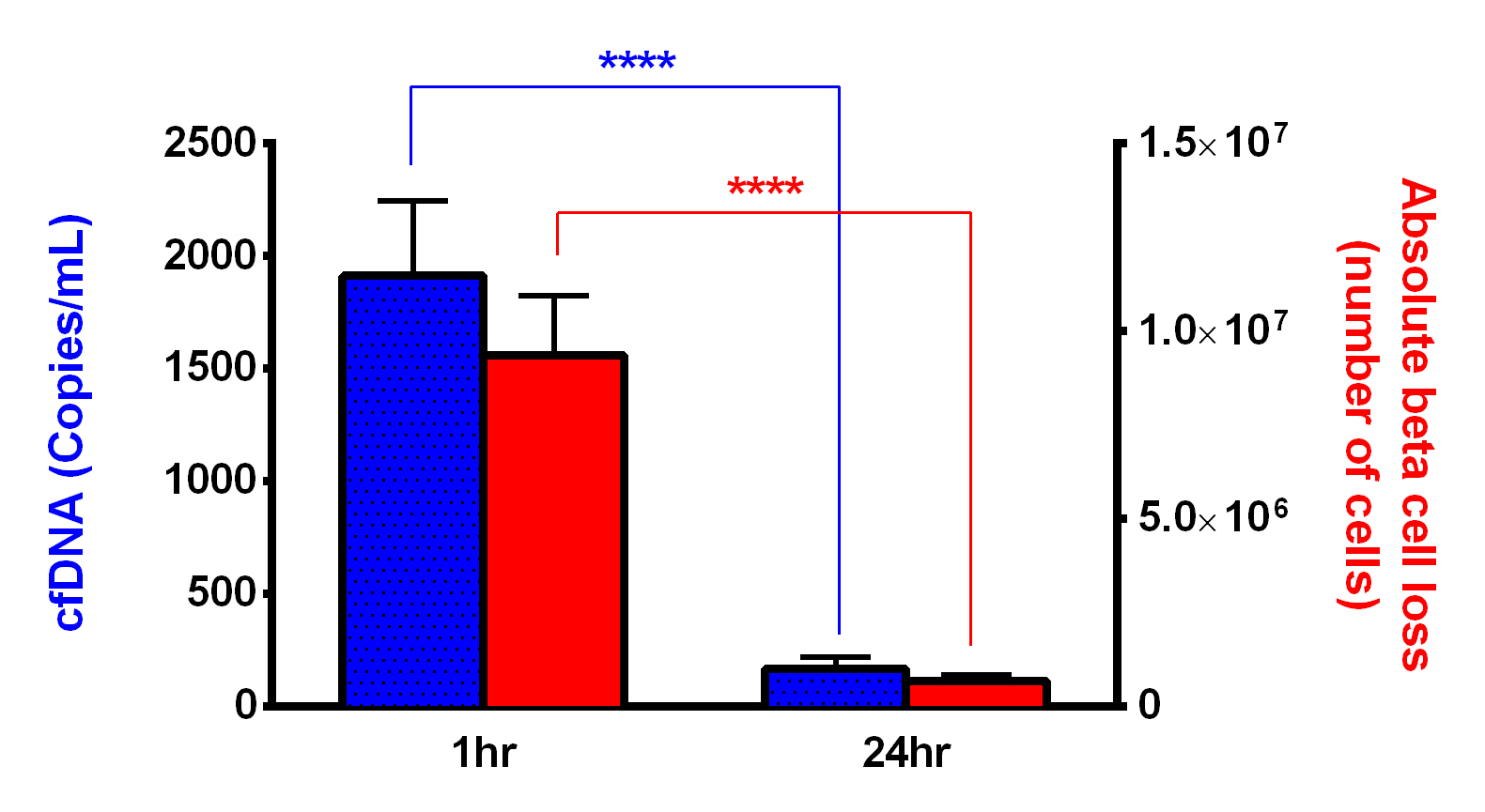Beta Cell-Specific Free Circulating DNA May Predict the Outcome After Clinical Islet Transplantation.
1Department of Surgery, Clinical Islet Transplant Program, University of Alberta, Edmonton, AB, Canada
2Department of Developmental Biology and Cancer Research, The Hebrew University-Hadassah Medical School, Jerusalem, Israel
3Endocrinology and Metabolism Service, Department of Internal Medicine, Hadassah-Hebrew University Medical Center, Jerusalem, Israel
Meeting: 2017 American Transplant Congress
Abstract number: C213
Keywords: Graft survival, Islets, Outcome
Session Information
Session Name: Poster Session C: Pancreas and Islet (Auto and Allo) Transplantation
Session Type: Poster Session
Date: Monday, May 1, 2017
Session Time: 6:00pm-7:00pm
 Presentation Time: 6:00pm-7:00pm
Presentation Time: 6:00pm-7:00pm
Location: Hall D1
Optimizing engraftment and early survival of human beta cells after clinical islet transplantation is critical to long-term function, but there are no reliable, quantifiable measures routinely available to assess early beta cell death. Beta cell-specific free circulating DNA (cfDNA) has been identified as a novel biomarker to detect islet loss, recently validated in new-onset type 1 diabetics and in islet transplant patients. Herein we report cfDNA measurements after allotransplantation in 37 subjects and the correlation with clinical outcomes. One distinctive peak of cfDNA was observed 1hr after transplant. This positive cfDNA was present in 31/37 (83.8%) of subjects and likely represents a proportion of dead cells carried over passively into the recipient after the isolation and culture process, and does not correlate with transplant outcome. cfDNA was also detected 24 hr post-transplant, but less frequently observed (8/37, 21.6%), and was associated with higher 1-month insulin requirements (p=0.04), lower 1-month stimulated C-peptide levels (p=0.01) and overall, worse engraftment, by insulin independence (ROC:AUC=0.70) and Beta 2 score (ROC:AUC=0.77). Our results indicate that 24 hr estimation of cell-death correlates with clinical transplantation outcomes and could predict islet engraftment at 3 months.
cfDNA was also detected 24 hr post-transplant, but less frequently observed (8/37, 21.6%), and was associated with higher 1-month insulin requirements (p=0.04), lower 1-month stimulated C-peptide levels (p=0.01) and overall, worse engraftment, by insulin independence (ROC:AUC=0.70) and Beta 2 score (ROC:AUC=0.77). Our results indicate that 24 hr estimation of cell-death correlates with clinical transplantation outcomes and could predict islet engraftment at 3 months.
CITATION INFORMATION: Gala-Lopez B, Neiman D, Kin T, O'Gorman D, Pepper A, Malcolm A, Glaser B, Shemer R, Dor Y, Shapiro J. Beta Cell-Specific Free Circulating DNA May Predict the Outcome After Clinical Islet Transplantation. Am J Transplant. 2017;17 (suppl 3).
To cite this abstract in AMA style:
Gala-Lopez B, Neiman D, Kin T, O'Gorman D, Pepper A, Malcolm A, Glaser B, Shemer R, Dor Y, Shapiro J. Beta Cell-Specific Free Circulating DNA May Predict the Outcome After Clinical Islet Transplantation. [abstract]. Am J Transplant. 2017; 17 (suppl 3). https://atcmeetingabstracts.com/abstract/beta-cell-specific-free-circulating-dna-may-predict-the-outcome-after-clinical-islet-transplantation/. Accessed February 10, 2026.« Back to 2017 American Transplant Congress
